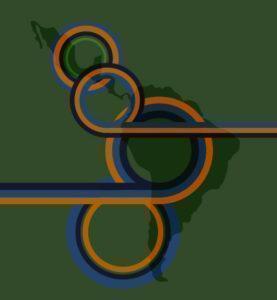A recurrent topic at the Latin American Immunology Congress (in Cancun, Mexico) was advances in oncoimmunology and immunotherapy. Dr Mantovani’s research focuses on how tumor associated macrophages play an important role in carcinogenesis and are potential treatment targets. At the congress, Dr Mantovani presented research that described how the IL-1 inflammatory cytokine drives tumor initiation and progression, while PTX3 can act as an oncosuppressor repressing the tumor-promoting inflammation. Dr. Rabinovich unraveled the regulatory role of Galectin-1 (Gal-1), a glycan-binding protein well known for its role in suppressing autoimmune inflammation, promoting immune tolerance in pregnancy and repressing antimicrobial immunity. Dr Rabinovich described how Gal-1 acts as a promoter of tumor immune escape and a linker of tumor immunity and angiogenesis.
The congress also hosted plenary lectures that focused on research that contributes to the development of effective vaccines against certain diseases, a major challenge for the scientific community. Dr Faith Osier described how developing a vaccine against the Malaria parasite (Plasmodium falciparum) is a difficult task, due to the complexity of immune responses to the parasite. However, the observation that people develop immunity against malaria, suggests that a highly effective antibody inducing malaria vaccine is a promising vaccine candidate. On the other hand, a vaccine against the human syncytial virus, a virus that causes respiratory tract infections, has been developed by Dr. Alexis Kalergis’ research group. Dr. Karlegi focuses on understanding the molecular mechanisms of the immunological synapse to optimize the immune response against infectious agents. During his plenary lecture, he described how viruses modulate host immunity and the role of dendritic cells in the initiation and progression of systemic autoimmunity.
New computational tools allow the identification of novel biomarkers that explain the functional diversity and plasticity of immune cells, as well as the heterogeneity of immune processes, that vary depending on the microenvironment, the tissue and the context. Dr. Ido Amit’s research group is currently working on single-cell genomics and on elucidating the spatial organisation of cell types in immune niches. At his plenary lecture, Dr. Amit talked about microglial checkpoints, that are immune mechanisms essential for an appropriate central nervous system development and a proper physiological function.
Article by Cristina Artaza Irigaray

